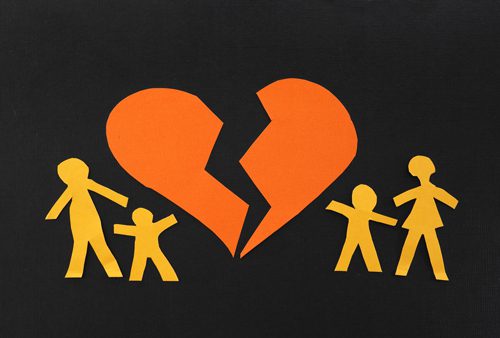Family Roles in Addiction
 You may have heard addiction referred to as a family disease. What does this mean?
You may have heard addiction referred to as a family disease. What does this mean?
The NCADD (National Council on Alcoholism and Drug Dependence) says that, “Addiction is a family disease that stresses the family to the breaking point, impacts the stability of the home, the family’s unity, mental health, physical health, finances, and overall family dynamics.” A healthy, normally functioning family operates within positive boundaries and adheres to a certain set of rules and roles that benefit the entire family structure.
When someone in the family is struggling with addiction, the entire family struggles with them, each in their own ways.
Family roles in addiction are created when the addicted person’s loved ones are trying to cope with changes at home that are occurring due to their family member’s behavior, state of mind, and overall state of being. These roles would not be assumed in a healthy functional family and are therefore considered unnatural. They are usually assumed unconsciously.
Family roles in addiction are often called ‘survivor roles,’ and five major survivor roles are widely recognized.
- The Enabler: This person is typically closest to the addicted person and is committed to doing whatever it takes to ‘help’ them. They always mean well, but in the end, all they are doing is enabling their loved one to continue their behavior and strengthen their addiction. The enabler often gives the addicted person money or takes care of their responsibilities; they may even lie and cover up for their loved one.
- The Hero: This family member is most likely an older child. They work as hard as they can to be a source of pride for their family to make up for the behavior of the addicted person. The hero will mature quickly and take on responsibilities that wouldn’t naturally fall to them.
- The Scapegoat: This family member is usually another child who acts out inappropriately, allowing the family to aim their bad feelings at someone other than the addicted person.
- The Lost Child: This role is usually taken by a child who has decided to lay low to avoid the turmoil as much as possible. They may think that the best thing for the rest of the family is to have one less person to worry about.
- The Mascot: The mascot is most often the youngest child or the person who is most naive about or oblivious to the addiction. Sometimes coddled and doted over, and often protected, this person is still affected by the family disease even if they may not understand it completely.
As a family member’s addiction progresses, the family becomes sicker too.
It is common for families to ignore their addicted loved one’s behavior until the situation explodes. At this point, long-term damage has most likely been done to both the family as a whole and the individuals within. While it is important for the addicted individual to seek help and find recovery, it is crucial that his or her family do the same. Many treatment centers have family programs dedicated to helping entire family units find lasting recovery.
If you would like to find out more about family roles in addiction or if you or a loved one need help, please contact us anytime at (337) 379.7700.
Share This Post:





 You may have heard addiction referred to as a family disease. What does this mean?
You may have heard addiction referred to as a family disease. What does this mean?
